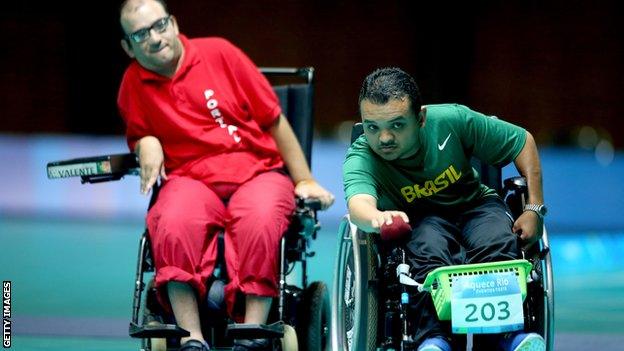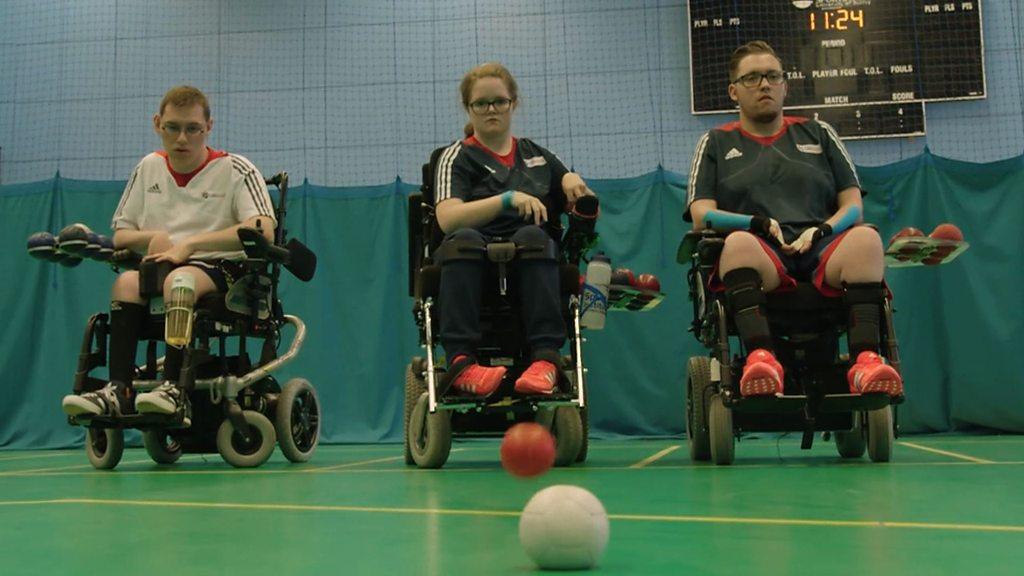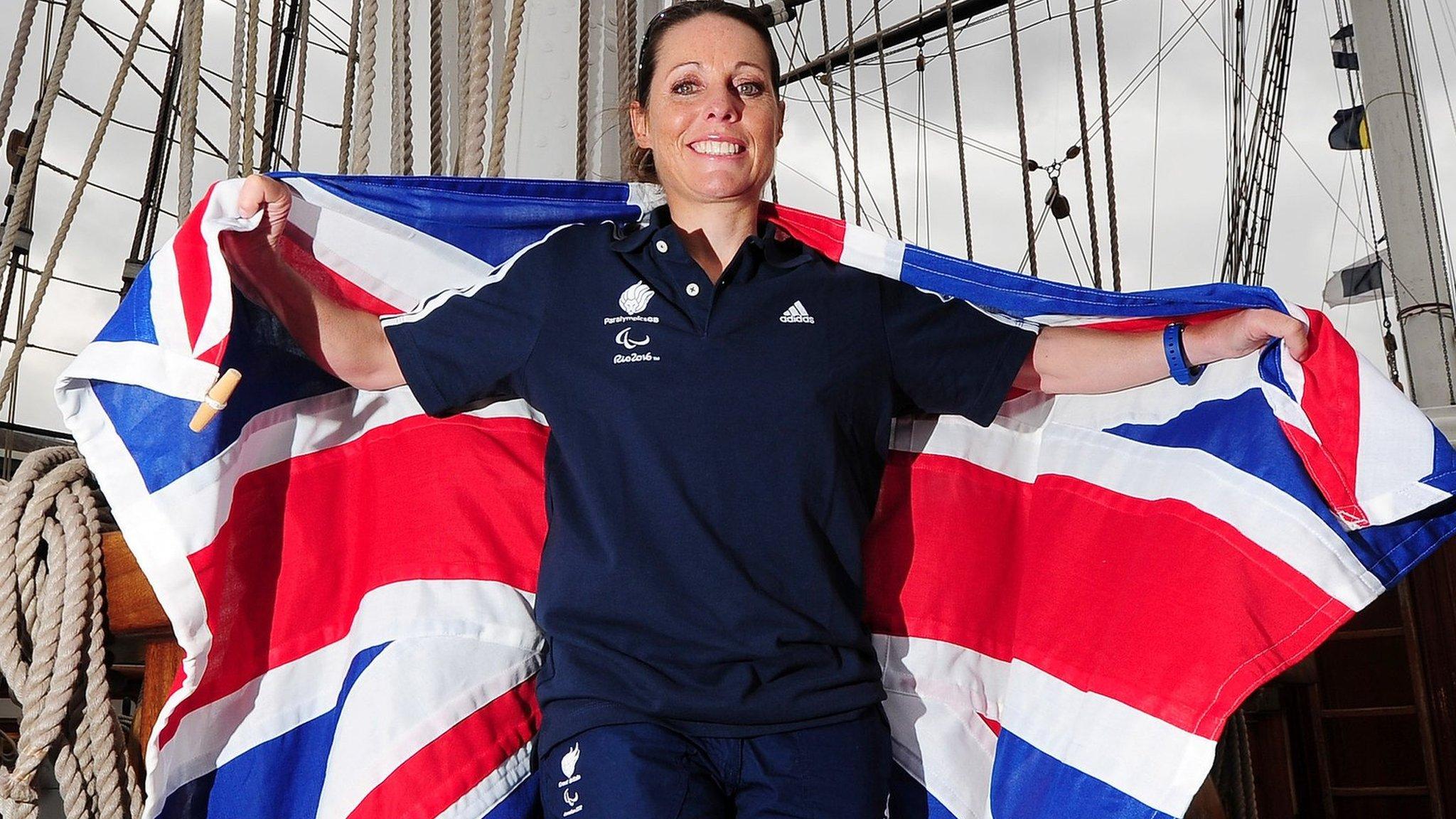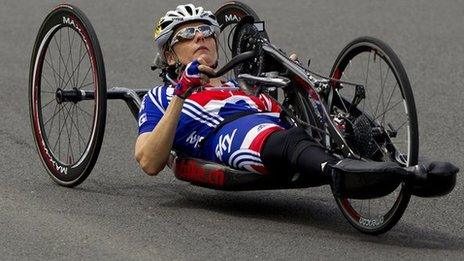Boccia at the Rio 2016 Paralympics: All you need to know
- Published
Paralympic Games on the BBC |
|---|
Venue: Rio de Janeiro, Brazil Dates: 7-18 September Time in Rio: BST -4 |
Coverage: Follow on Radio 5 live and via live text commentary |

Boccia was a game designed for athletes with a severe physical impairment such as muscular dystrophy
How does it work?
Boccia is one of three Paralympic-specific sports which has no Olympic counterpart and is for athletes with conditions like severe cerebral palsy and muscular dystrophy that affects all four limbs.
The sport is played indoors on a court similar in size to badminton with players positioned at one end.
Both sides have six balls - one side has red balls, the other blue balls and the aim of the game is to get your balls closer to the white target ball, the jack, than your opponent.
The balls are made of leather and are filled with plastic granules so they do not bounce and are easy to grip.
Individual and pairs matches consist of four ends while team matches have six ends. Once all ends have been played, the side with the highest score is the winner.
To start an end, one side will throw the jack. They will then throw their first ball trying to get it as close as possible. The other side then attempts to throw their ball closer. After that, the side whose ball is not closest to the jack throws the next ball. Once all balls have been played, points are awarded. The side that is closest to the jack receives a point for every ball they have nearer than their opponent's closest ball.
Rio 2016 Paralympics: Boccia, the Games' most inclusive sport
There are four classifications and all events are mixed.
BC1 players have cerebral palsy and are allowed to use their hands or feet to play the ball. They are permitted to have an assistant on court to pass them the ball before they throw.
BC2 players have cerebral palsy and are more able to grip and release the ball. They do not have an assistant on court and have to throw the ball onto the court.
BC3 players have cerebral palsy or other conditions and have the highest level of impairment. They are unable to throw or kick the ball and play using a ramp which is positioned by an assistant who faces away from play and is not allowed to turn around for the duration of the end. The assistant also places the ball on the ramp for the player to release.
BC4 players do not have cerebral palsy and are able to throw the ball into play.
Who are the British medal hopes?
Stephen McGuire won gold in the BC4 category at this year's World Championships in Beijing while David Smith, silver medallist at London 2012 in the BC1 event, claimed bronze.
The BC1/2 team will also be hoping to win a medal for a third Games in a row.
Who are the other challengers?
Brazil topped the medal table in London with three golds while Thailand, Korea and Hong Kong are also traditionally strong nations.
Did you know?
Boccia in Rio will be a family affair for the McCowan family from Dundonald, near Ayr. Brothers Scott and Jamie will be representing ParalympicsGB in the BC3 category with dad Gary and mum Linda acting as their ramp assistants.
ParalympicsGB London 2012 medals
Two (one silver, one bronze).
- Published1 September 2016

- Published23 August 2016

- Published5 September 2016
